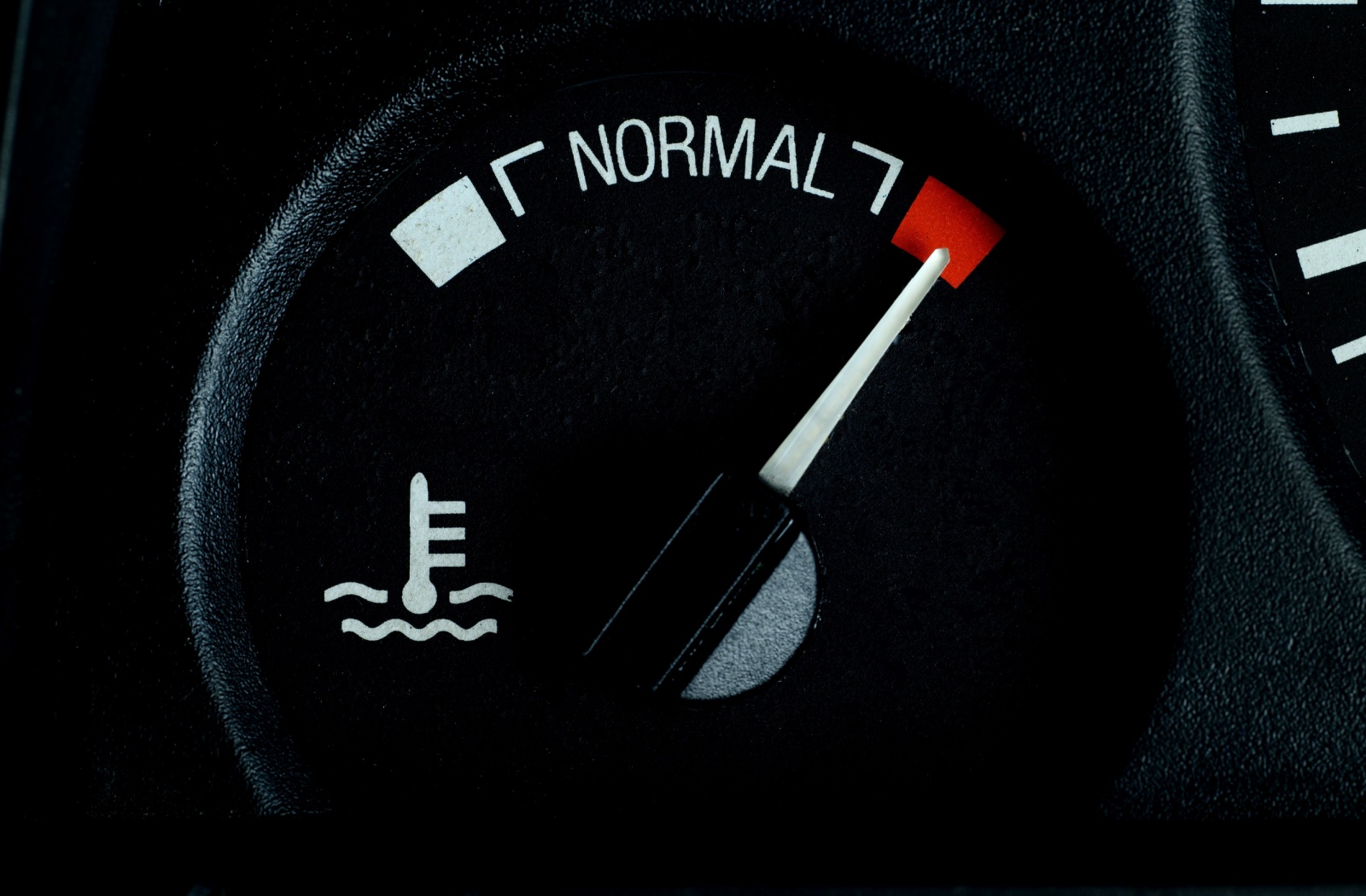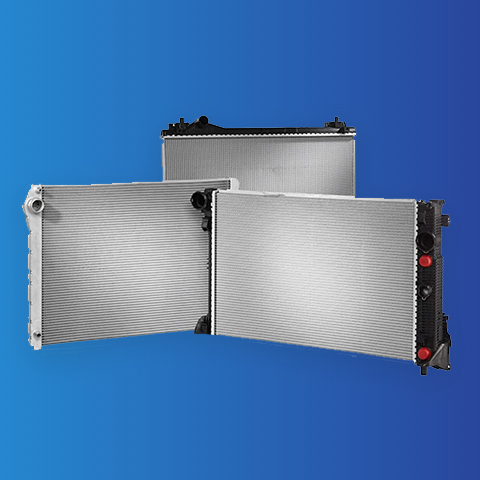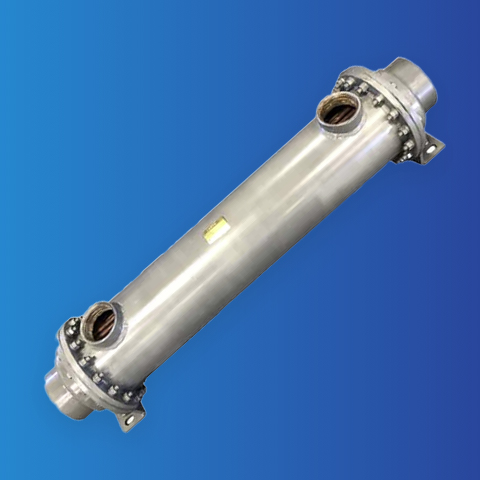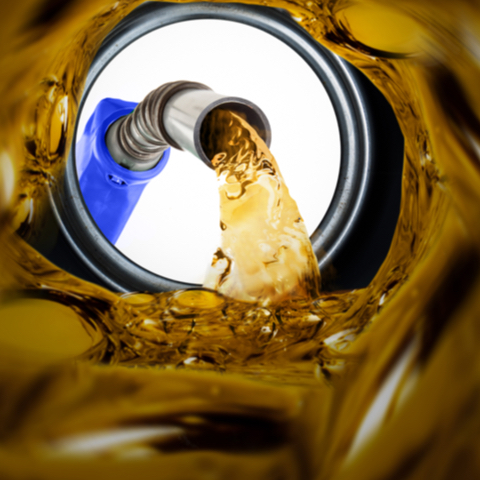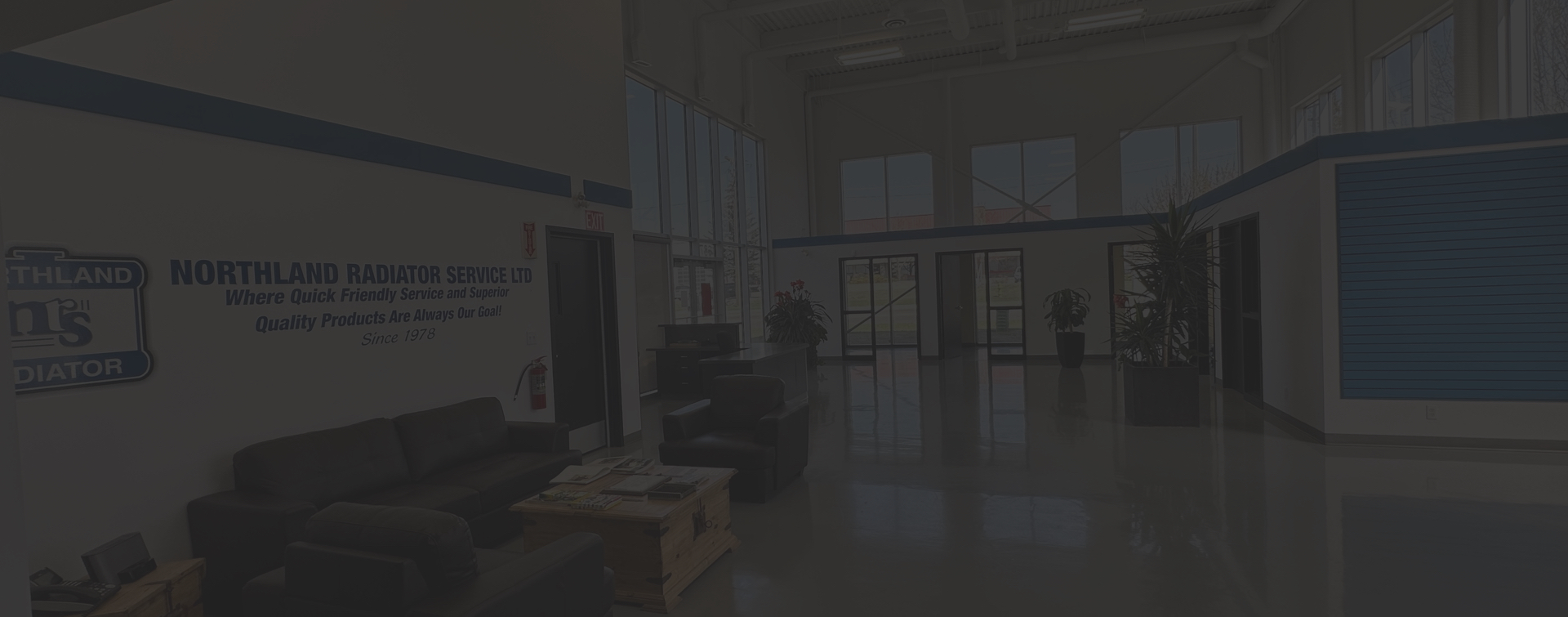While your engine keeps your truck moving down the road, all that work can eventually take its toll. Overheating is a common yet critical issue that many people encounter. When a truck overheats, it can lead to significant engine damage, costly repairs, and downtime.
Some of the reasons your engine may overheat include:
- Poor coolant circulation
- Low coolant levels and leaks
- Clogs or damage
- Extreme weather conditions and heavy loads
- Low oil levels
Pinpointing the cause can be difficult, but a heat transfer specialist can help you keep things cool with professional radiator repairs and other maintenance services—so you can keep driving without getting hot under the hood.
Common Causes of Overheating Engines
Poor Coolant Circulation
The cooling system plays a vital role in regulating an engine’s temperature and ensuring it operates within a safe range. Components such as the water pump, thermostat, and hoses must function correctly for the system to work efficiently.
A faulty pump can fail to circulate coolant properly, leading to inadequate heat dissipation. Common signs of a faulty pump include a high-pitched whining noise, coolant leaks around the pump area, and steam coming from the radiator.
Similarly, a stuck thermostat might prevent coolant from flowing through an engine, causing it to overheat. It is crucial to regularly inspect, maintain, and replace these components as needed before they lead to issues that could force you to replace your radiator.
Low Coolant Levels & Leaks
Coolant is essential for dissipating heat from an engine by transferring it to the radiator, where it is cooled by airflow. Low coolant levels, often due to leaks, can lead to overheating because there is not enough fluid to manage the engine’s heat.
Leaks can occur in various parts of the cooling system, including the radiator, hoses, and the engine block itself.
It is important to keep an eye on your coolant levels and ensure that the coolant you use is high-quality. You should replace old or contaminated coolant as recommended by your truck’s manufacturer or your service provider. It is also a good practice to look for puddles of coolant when your vehicle is parked, which can indicate a leak.
Clogs or Damage
Clogs and damage to your radiator can reduce the efficiency of your cooling system. Dirt, debris, and corrosion can all contribute to radiator problems, obstructing the flow of coolant and reducing its ability to expel heat.
Regular maintenance, including flushing your radiator and cleaning its surface, can prevent clogs and help ensure it remains in good working condition. If your radiator is damaged, it may need to be repaired or replaced to restore proper cooling performance.
Extreme Weather Conditions & Heavy Loads
Driving in extreme weather conditions, whether they are exceedingly hot or bitterly cold, can put additional strain on an engine. High temperatures can increase the risk of overheating, while freezing conditions can cause the coolant to thicken, making it less effective. Similarly, carrying heavy loads can increase an engine’s workload, leading to higher operational temperatures.
Unfortunately, this can be a hard factor to avoid when there is work to be done. To mitigate these risks, ensure your cooling system is in top condition and consider using high-quality coolant designed for extreme conditions. Additionally, avoid overloading your vehicle beyond its recommended capacity to maintain optimal engine performance and temperature.
Low Oil Levels
Engine oil plays a vital role in lubricating moving parts and reducing heat generated from friction. Low oil levels can lead to increased temperatures and an increased risk of overheating.
Regularly checking and maintaining optimal oil levels is essential for preventing this issue and other engine issues. Keep an eye on your oil warning light, but also be aware of other Indicators of low oil levels, such as a clunking sound coming from the engine or reduced fuel efficiency.
What to Do When Your Truck Overheats
If your temperature gauge starts running higher than usual while you are on the road—or worse, you notice steam from under the hood—pull over to a safe location away from traffic immediately. If you are running air conditioning, turn it off as well. A/C can put more strain on your engine, and while it likely will not drop the temperature enough to address the problem, it is a good small step.
Once you are parked, turn off the engine and allow it to cool down. Do not attempt to open the radiator cap while the engine is hot. Once the engine has cooled, you can check the coolant level in the overflow tank. Refill it if it is low and you have the proper type of coolant as recommended in your owner’s manual. You can try restarting the engine, but watch the temperature gauge and turn it off immediately if it begins to overheat again.
This fix may be only temporary if it works at all. It is important that you take your truck to a heat transfer specialist if it overheats often or severely. Regular maintenance can help your radiator last longer and help address potential issues before they become major problems, saving you time and money.
Keep Your Truck Moving Forward
A well-maintained radiator is essential for preventing overheating. Choosing a reliable radiator service provider like Northland Radiator can help you ensure your cooling system is always ready to meet your needs.
Our technicians are passionate about 1 thing—radiators. We have helped many drivers stay on the road and stay cool under the hood. When things are not running as smoothly as they should, contact us for comprehensive service.

